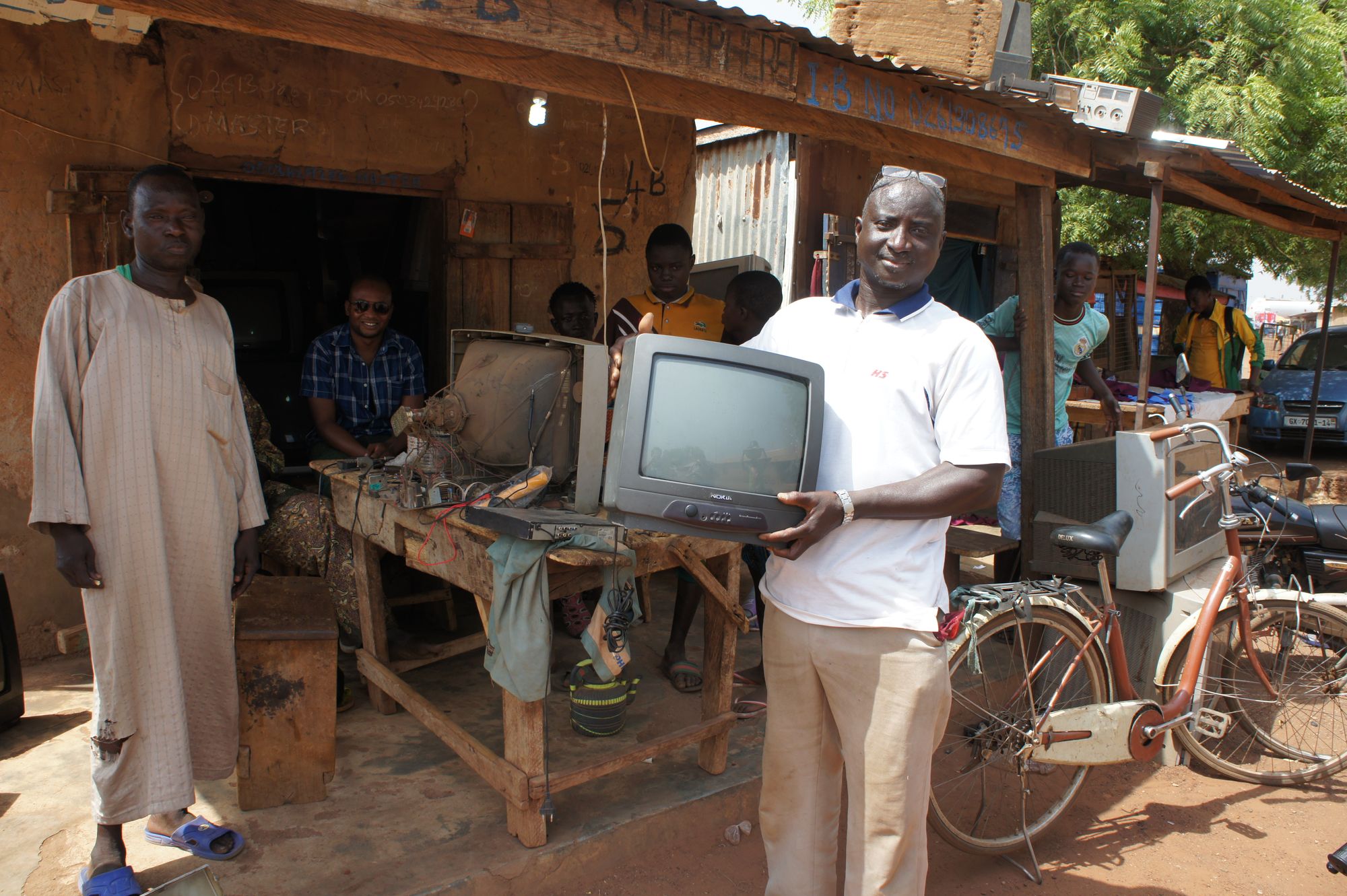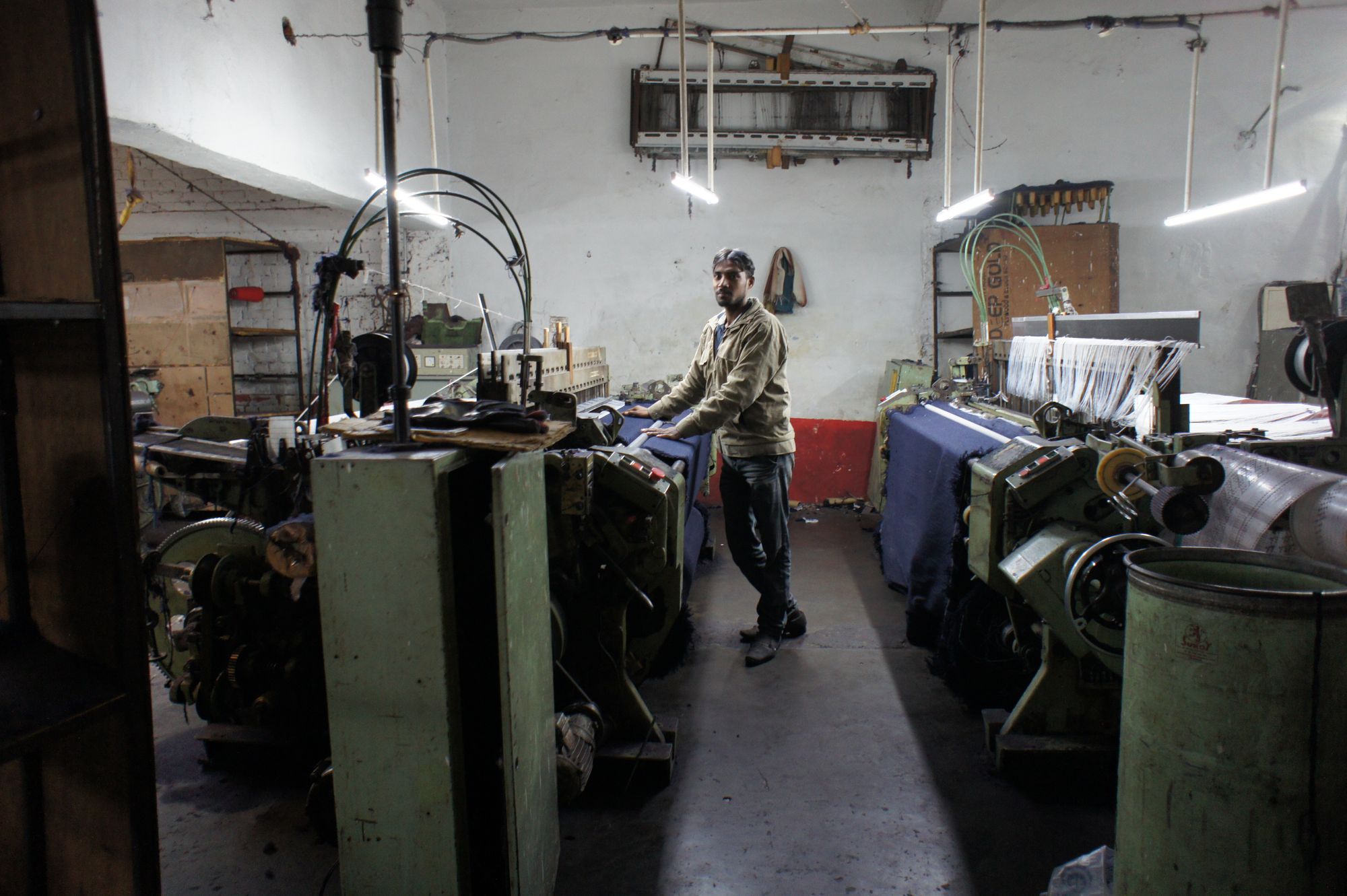There’s a good chance the things I donate to my local thrift store aren’t reused in my community. Instead, they’re likely bundled up in wholesale quantities and shipped around the world to markets in Africa, South America, and Asia. Adam Minter’s Secondhand: Travels in the New Global Garage Sale traces the movement of goods across borders and oceans, from developed economies like the United States and Japan to their second lives in developing countries like Malaysia or India. From thrift store pickers hauling trucks of stuff across the southern border to be sold in Mexico, to bales of clothing from Canada being shipped to West Africa, Minter reports stories from the front lines of the secondhand market.
Adam is a columnist at Bloomberg, and also author of Junkyard Planet: Travels in the Billion-Dollar Trash Trade. He recently joined Scope of Work's Member’s Reading Group for an hour-long conversation about the global movement of secondhand goods. What follows is an edited and condensed transcript of our discussion.
Hillary Predko: One thing I appreciate about your writing is that you push back against dumping narratives – the idea that the global exchange of goods is characterized by developed countries offloading trash on developing countries. Agbogbloshie, in Ghana, for example, is commonly described in news articles as the world's largest e-waste dump. But, as you point out, no one is just smashing apart perfectly good electronics. Instead, locals are buying, refurbishing, and reusing electronics. If goods find their way to Ghana, somebody has purchased them, and somebody is selling them. There is work to do to ensure the final end-of-life step for goods is managed safely, but the dominant narrative overlooks the fact this is an active market. It seems like debunking the dumping narrative is something of a mission for you.
Adam Minter: It is, and I think there are a few reasons for it. I mentioned it in Secondhand, and I get into it much more on Junkyard Planet, but my family was in the recycling industry and I'm very defensive on the part of recyclers everywhere. My great-grandfather came to the US with nothing and started out literally scrounging on the streets of Galveston, Texas for rags to recycle. So there's that personal side to it, but there's another side, which is about who we give agency to.
I think the narrative that's been established takes away agency from African and Chinese recyclers – it just says, you're dumping garbage on these people. I don't think that's accurate, and I think there's something very unsettling about that kind of narrative. It takes away their agency, it takes away their humanity.
One of the things I wanted to do with this book was to say, look, these are not helpless natives, as they’re commonly depicted – they are business people who are doing things for themselves, for their families, for their towns. I mean, Wahab Mohammed in Tamale [a city in Ghana], he's very proud of the fact that the computers that he brings in from Vermont are refurbished and purchased by schools and hospitals in Tamale.

That's not a story that you can tell if you deny agency to somebody like Wahab. In the last few years, there's been a lot of talk about restoring equity to narratives in the media. The book was started before that really took off, but it's always been on my mind that we have denied agency to the folks who do this work. I think that's a mistake, and it also just inhibits our understanding of how this trade works.
It's very easy to figure out that folks in this industry have agency. You just have to look at the shipping documents.
It's very easy to figure out that folks in this industry have agency. You just have to look at the shipping documents. It's not free to ship something to Ghana, and the price of shipping is picked up by the people in Ghana or in Pakistan. Just from a cost perspective, it makes zero sense to ship a container of old electronics from Vermont to get rid of something – somebody has to want to pay you to do it.
Sylvia: I want to build on that, Adam – the discussion of recognizing the agency of people in the industry reminds me of a point that you made a couple of times in your book about how colonialism, both past and present, enters into the secondhand market that we have today. And so my question is open-ended but I'm curious how we can use our relative power in that international hierarchy to affect positive change.
AM: One of the underlying themes in this book is who gets to define what is waste. Right now, the way that treaties, legislation, regulations, and narratives are being written, it's really Europeans and North Americans who are deciding what is waste and telling the rest of the world to follow our definition. That to me is very troubling on a number of levels. Firstly, just as a junkyard kid, because that's how I identify.
But I think anybody who goes to a thrift store, they embrace it. They enjoy finding treasure down at the Goodwill or Salvation Army, but something flips the moment we say, “That person in Ghana sees treasure where you see e-waste” – suddenly, the heels dig in. That to me is troubling because I really don't understand why folks in North America (or Brussels to be specific), should be deciding for an electronics trader in Tamale what is waste. It’s like saying, “You can't have this because in Brussels, we only use it for four years, and your decision to use it for seven years is the incorrect one.”

Read the full story
The rest of this post is for SOW Subscribers (free or paid) only. Sign up now to read the full story and get access to all subscriber-only posts.
Sign up now


